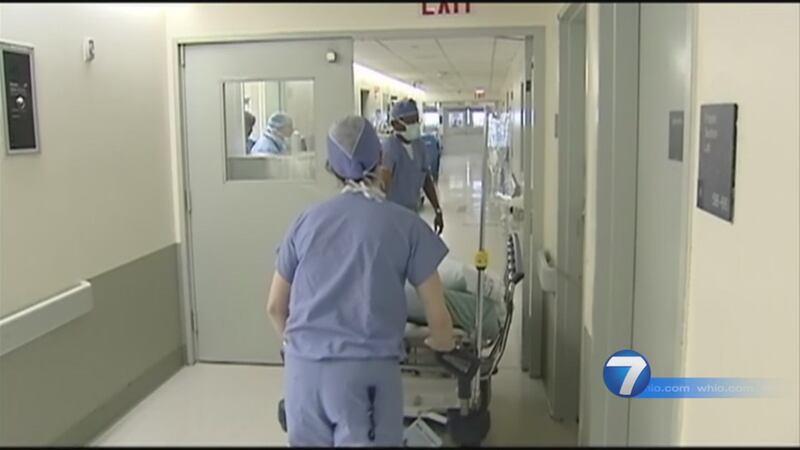Shelly Morgan's daughter, Ashley, was only 32 year's old when she died.
"Ashley was addicted to heroin," Morgan said. "She thought she was buying heroin but she ended up getting pure fentanyl, and so she died of a fentanyl overdose."
Even at such a young age, Ashley had made a commitment to donate her organs.
"I asked, 'Would it be possible to donate or receive organs from a drug addict?' And it was like, ‘Oh yes, absolutely,'" Morgan said.
TRENDING COVERAGE: 5 organ donation stories you really won’t believe
Doctors were able to harvest Ashley's liver and her kidneys.
"Which was totally surprising to me and other people because you don't think that those organs would be viable," Morgan said. "There were actually three people who benefited directly from her death, which I think is a great thing."
Since 2016, 75 lives have been saved through heroin overdose donors, according to Stephanie Burianek, who works with Life Connection as a liaison to hospitals in Dayton and Toledo. It is the silver lining to the opioid crisis.
"That gives peace to the family that yes, they passed of this horrible tragedy, but they are able to give that gift and do something good," Burianek said.
The Miami Valley has seen a significant increase in overdose organ donors just year to year. In 2016, 14 percent of local donors died of an overdose. The following year that number was up to 31 percent. Across the country, the number of overdose donors increased 17 percent every year between 2000 and 2017.
WHAT YOU NEED TO KNOW: The myth of opioid addiction and organ donation
Dr. Gnan Thakore is in charge of the medical ICU at Miami Valley Hospital. He said every donor is screened and overdose organs are typically just as viable as those of any trauma patient. In fact, they are superior to the organs of older patients, he said.
"These are really good organs we should not be losing," Thakore said.
However, he said some of those donors are at an increased risk for carrying viruses like H-I- and Hepatitis C.
"They had told my wife that I probably wasn't going to live through the rest of the week," said Hatem Tolba, an organ recipient.
Tolba was in a coma after an E-Coli infection. His wife chose to accept a liver from an overdose donor in Boston, who was positive for Hepatitis C. It saved Tolba's life and he was cured of the virus within a few months of his transplant surgery.
"In their death they're a hero to us, to my husband, to our family, to our whole extended family, to our friends," said Julie Tolba. "They're our savior."
Shelly Morgan said she is proud of her daughter and she appreciates her forethought to be an organ donor. In Ashley's absence, Morgan has made it her mission to encourage others to have the same forethought and sign up to donate their organs.
"We don't need them," said Morgan. “ Why not share them and make a difference in someone else's life?"
Organs From Addicts: A News Center 7 Special Report today starting at 5If you or a loved one need a life-saving transplant, would you take an organ donation from an addict? https://bit.ly/2K080MX
Posted by WHIO on Tuesday, May 8, 2018






